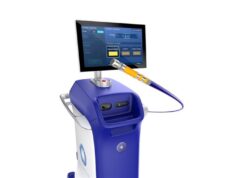Independent preliminary analysis by the Population Health Research Institute (PHRI), an academic health science research institute, has found low rates of insulation abrasion and mechanical failure of Durata and Riata ST Optim implantable cardioverter defibrillator (ICD) leads.
The PHRI analysed data from three actively monitored registries; the OPTIMUM, SCORE and SJ4 Post-Approval registries, all sponsored by St Jude Medical. The combined data from these registries currently represents 10,987 leads implanted at 293 sites. Complete results have been published on the second edition of the 2012 St Jude Medical Product Performance Report (PPR), released on 8 November on www.sjmprofessional.com.
The findings from PHRI’s initial analysis of the combined Optim-insulated lead registries, include:
- 0.06% rate of all-cause insulation abrasion (includes all types of abrasion and other mechanical types of insulation damage)
- 0.31% rate of all-cause mechanical failure (includes any insulation abrasion, conductor fracture, failure of a crimp, weld, or bond, or other mechanical failure)
“PHRI conducted this independent analysis of the combined lead registries and found that the rates of insulation abrasion and mechanical failure of Riata ST Optim and Durata leads appear to be very low,” said John Cairns, professor of Medicine and former dean of Medicine at University of British Columbia in Vancouver, Canada. “The strengths of these registries are their prospective designs, the use of pre-specified and standard lead failure definitions, and the adjudication of all outcomes by expert personnel.”
PHRI convened a committee of independent physicians chaired by John Cairns, an internationally recognised expert in cardiology clinical trials who has no affiliations with the cardiac rhythm management device industry, to perform the analysis. Additional committee members include Stuart Connolly, professor and director of the Division of Cardiology at McMaster University, Jeff Healey, associate professor of Cardiology at McMaster University, Andrew Epstein, professor of Medicine at the University of Pennsylvania and chief of Cardiology at the Philadelphia Veterans Administration Medical Center, and Christopher Buller, professor of Medicine at The University of Toronto and director of Cardiac Catheterization and Intervention at St Michael’s Hospital.
“PHRI’s independent analysis of Optim-insulated defibrillation lead data continues to support the safety and reliability of our Durata leads,” said Mark Carlson, chief medical officer and senior vice president of Research and Clinical Affairs for the St Jude Medical Implantable Electronic Systems Division. “We will continue to closely monitor the performance of our high-voltage leads in order to support our efforts to provide safe, reliable devices to physicians around the world.”
The committee will continue to meet on an ongoing basis to review data as it is collected, which will be reported in future St Jude Medical Product Performance Reports.
About PHRI
The Population Health Research Institute (PHRI) was founded in 1999 as a joint Institute of Hamilton Health Sciences Corporation (HHS) and McMaster University; it is now one of the largest and most cited academic cardiovascular research groups worldwide. The institute’s vision is to conduct large simple studies to address questions of international importance and relevance. Its research programs explore the causes and prevention of cardiovascular disease, diabetes, obesity and societal influences on health, perioperative vascular complications, and stroke.
PHRI has conducted more than 50 global trials and epidemiological studies in more than 1500 centers in 83 countries, involving over 500,000 patients, leading to more than 800 publications in the last 10 years in journals such as the New England Journal of Medicine, The Lancet, the Journal of the American Medical Association, the British Medical Journal, Circulation, the Journal of the American College of Cardiology and the European Heart Journal. Several of the discoveries made by scientists at the PHRI have influenced prevention and treatment practices worldwide.









